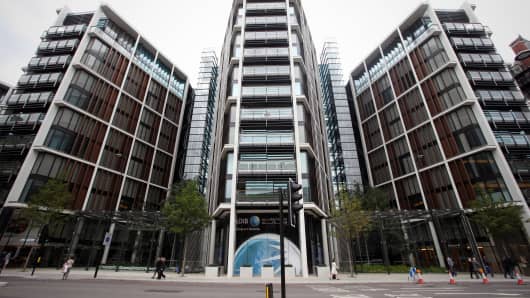Christmas lights twinkle gaily in the shop windows that stretch from Harrods to Knightsbridge station, reflecting in the facades of the outsized apartments that sit across the street.
The presence of wealth is overpowering; the scene a reminder that certain areas of London have cruised though the financial crisis without experiencing the ill effects being wrought on the rest of the country.
But the government's clampdown on property tax avoidance is starting to gather steam in these mansion-flanked streets.
In the central London boroughs of Kensington and Chelsea and the City of Westminster, there are as many as 3,000 homes, with a present value of 17.3 billion pounds held in offshore companies, according to new research from Savills, the property consultancy.
As well as the 15 percent stamp duty applied to the sale of homes worth over 2 million pounds held by companies introduced in March, these properties will now also be subject to an annual levy of up to 140,000 pounds and capital gains tax.
The centre of the UK's luxury property market is One Hyde Park, a block of 72 apartments that have become the pied--terre la mode for many of the world's super wealthy.
According to Land Registry data, at least 30 of the 72 apartments in the luxury development are owned by offshore entities registered in the British Virgin Islands.
Ranging in price from 4 million to 136 million pounds, the combined annual levy due on these properties alone amounts to 2.63 million pounds. Owners of properties worth 20 million pounds or more will have to pay 140,000 pounds a year under the new rules.
"A lot of the apartments are registered in offshore companies," says Nick Candy, chief executive of Candy&Candy, the development managers of One Hyde Park, "but so what?"
Mr Candy said since the changes in April's budget: "Every single one of the transactions has paid stamp duty correctly, and it has probably raised over 100 million pounds in taxes for the country. The government has really missed the point on this: most people use companies because they value their anonymity, not because they want to dodge tax," he adds.


